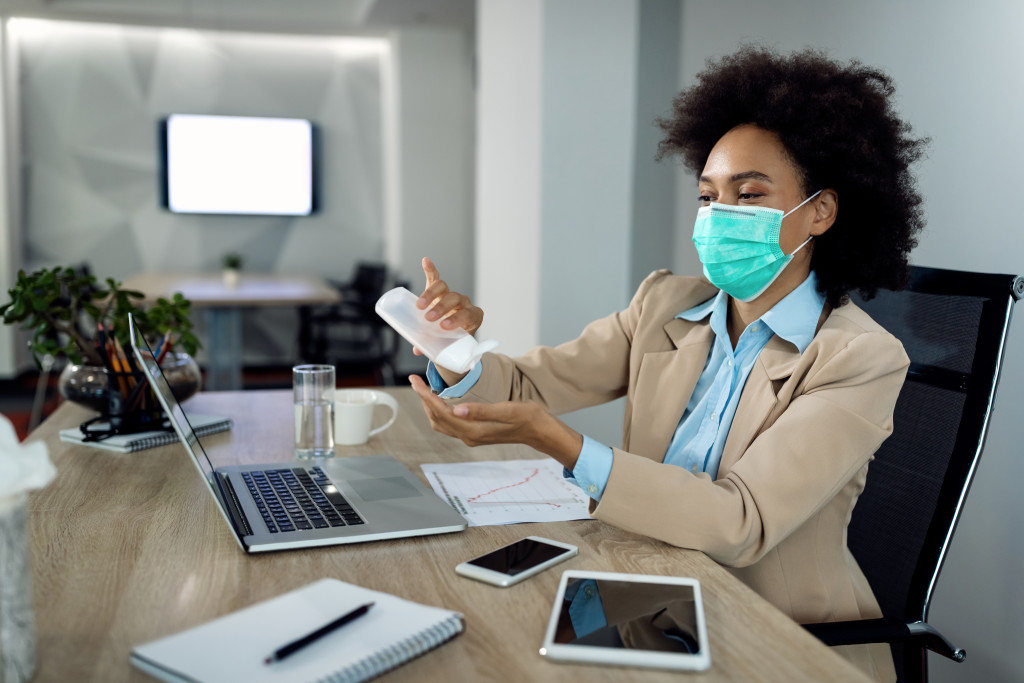The COVID-19 pandemic has significantly transformed everyone’s everyday lives, from how we work, travel, and buy groceries to how we order food and go to school, among others. Simply put, the global health crisis has created an unfamiliar context for everyone who has to let go of their normal lifestyles to accommodate the new normal.
In the beginning, the lockdowns seemed appealing to people whose life never seemed to slow down. It gave them a chance to spend a few weeks at home with their family, have time for their long-overdue hobbies, and be productive at work. But as the months went by, people realized that months of lockdowns are no longer bearable, coupled with the disturbing news about COVID-19 around the globe.
On the brighter side, staying at home for a long period has given people time to reflect on their lives. Some maximize the opportunity to learn new skills or acquire new expertise to make wise use of their time. That’s why it’s not surprising why online training programs started emerging during the pandemic. These include cooking classes, hairdressing training, graphic design workshops, and fitness courses, among others.
The internet offers countless resources to keep us occupied and distracted. Despite this, some people are suffering from stress and anxiety because of the uncertainty and unprecedented challenges caused by the pandemic. This resulted in feelings of guilt, as more people are feeling regretful because of the lost time. With this in mind, we’ll talk about how the pandemic is causing people to feel guilt and ways to deal with it.
Make time for yourself
For most people, all the extra time during the lockdowns materialized. But the uncertainty brought nothing but anguish, burnout, and a small amount of drive to do what is only necessary.
Even if we are motivated to work toward a huge goal, guilt can affect our well-being if we have no time to relax and recharge. Downtime is a must to ease one’s anxiety and live a happy and healthier life. Making time to look after yourself is increasingly essential during the pandemic, as mental health concerns are dramatically rising.
According to a survey by the Centers for Disease Control and Prevention (CDC), researchers found
an increasing trend of adults suffering from anxiety and depression during the later months of 2020 compared to the first half of 2019.
The disturbing nature of the COVID-19 crisis has highlighted the importance of downtime. Being in panic mode can risk damaging consequences to our health. A weak body compromises the immune system, exposing it to viruses and contagious diseases. Allowing your body and mind to rest provides the protection they need.
Having alone time doesn’t need to be productive. You can start by replacing mundane activities with something unfamiliar, such as learning arts or mastering a new language. Meditation also help practice mindfulness by being more present and prevent your mind from drifting towards anything negative and stressful.

Never make comparisons
The last thing you need right now is to compare yourself to what others have achieved during their time in lockdown. Yes, some of your friends or family members have achievements that remain an overdue goal for you. But this doesn’t mean it’s your fault for being inadequate. No one is exempt from the onslaughts of the pandemic—every individual has unique challenges to face, and most of them choose not to be transparent about it.
Comparison truly robs us of joy. Whether on someone’s experience or social media, holding unrealistic representations of other people’s lives as your reference point allows you to miss out on the struggles, challenges, and other external factors that taint every person’s world.
Be kind to yourself
Reflect on your experiences and decisions over the years and give yourself some slack. Allow yourself to change priorities when necessary. Instead of thinking about immediate problems, focus on more meaningful projects.
Pandemic-related anxiety affects our ability to remember and process things. Remember that thinking about lost time will not make things come back or return to normal. The future after the pandemic is filled with countless possibilities. Use the time to identify your goals and prepare yourself to work towards them.
The things that make you feel guilty right now could likely go on, but it’s up to you if you let those feelings take over you. There are several things you might feel bad about the pandemic, and it’s natural to be sad and emotional in these trying times. But keep in mind that you are not alone in this struggle. Building social connections amid the physical distance is still the best way to make you feel better.

